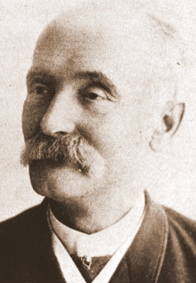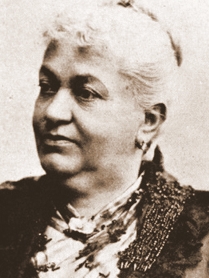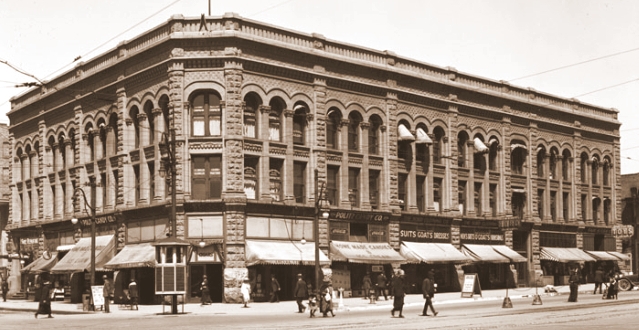Julius and Fanny Brooks
Values Codes I – E – L
Julius Gerson Brooks was born in 1825 in Frankenstein, Germany (near Breslau).
Isabella (Fanny) Bruck was born in 1837 in Schweidnitz, Germany.
Fanny Bruck was educated in Germany, completing high school with high honors.
She also spoke German, French, some English, and played guitar and piano.
Along the way
In 1847, Julius Brooks left Germany for the United States.
He wanted to join the California Gold Rush, but did not have enough money for the journey West.
He stayed in the East for five years, earning money for his passage home.
Julius Brooks returned to Germany before coming back to America in 1854 with Fanny, his new bride.
They began their journey in New York, then headed West via wagon train to Utah and California. The cost of wagon train travel was $65.
In The Wild West
In Marysville, California, Julius Brooks opened a general merchandise store.
It was not successful, so Fanny and Julius moved to a number of other western cities – San Francisco, Portland and Boise — trying to find the right home for their growing family.
Salt Lake City
In 1864, the Brooks family settled in Salt Lake City, Utah.
In 1865, Julius and Fanny Brooks bought a house at Third South and Main Street for $2,300.
Fanny opened a boarding house with a dining hall that held forty people.
They eventually owned several rental properties.
Around 1867, Julius became a real estate developer, arranging for seven homes to be built so he could rent them to new emigrants.
In 1868 it was decreed that Mormons were forbidden from doing business with non-Mormons.
When Mormon tenants began moving out of the Brooks boarding house, Fanny visited Brigham Young and tried to reason with him, reminding him that she and her family had worked hard to help create a strong community in Salt Lake City. She convinced him and soon their boarding houses were flourishing again.
In 1969, Brigham Young offered the Jewish community land for the purpose of constructing a Jewish cemetery.
In 1872, Julius opened Brooks Furniture Store.
The following year, the Brooks family moved to New York, only to return to Utah several years later.
Fanny opened a millinery shop on 3rd West and 1st South streets.
In 1879, Julius purchased property for the Brooks Arcade at 260 South State Street.
Their Ricardsonian Romanesque department store building was constructed in 1891.
Family
In 1853, Julius Brooks married Isabella (Fanny) Bruck in Hamburg, Germany.
They had 6 children: Cecelia, George (1857-1869), Eveline (b.1859), Amelia, Edgar Gerson (1864?-1888), and Milton (1865-1870).
The Brooks children attended LDS Sunday school until the first synagogue was built in 1875.
Eveline Brooks married Samuel Auerbach of Auerbach’s Department Store of Salt Lake City in 1879.
Julius Brooks died in 1885 while vacationing in San Remo, Italy.
Fanny Brooks died in 1901 in Wiesbaden, Germany, her birthplace.
They are buried in B’nai Israel Cemetery, the Jewish section of the Salt Lake City Cemetery.
Sources
- Eileen Hallet Stone, A Homeland in the West: Utah Jews Remember (Salt Lake City: University of Utah Press, 2001).
- Ava Fran Kahn, ed., Jewish Voices of the California Gold Rush: A Documentary History, 1849-1880 (Detroit: Wayne State University Press, 2002).
Samantha Silver is curator of this Julius and Fanny Brooks exhibit.


